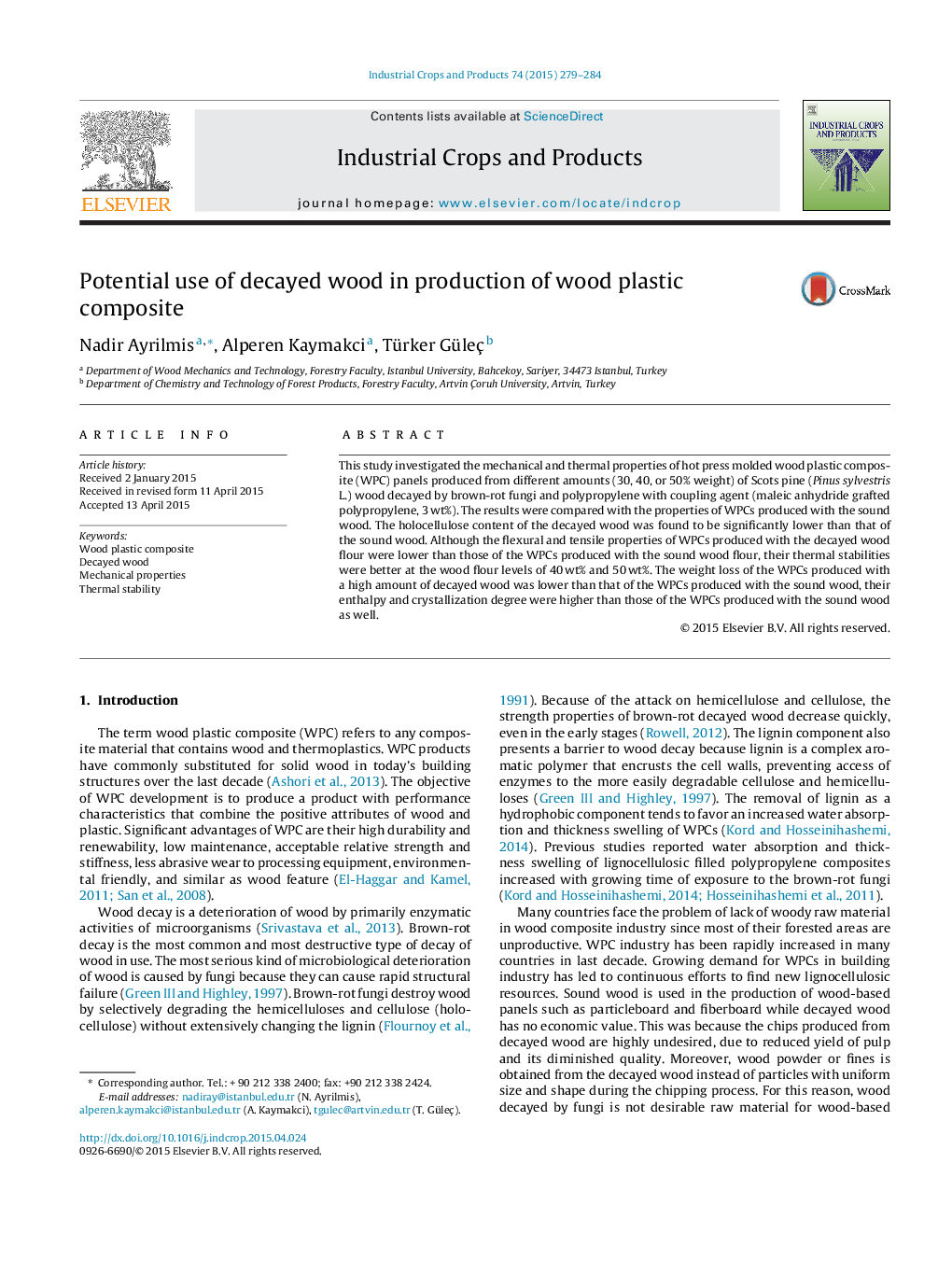| Article ID | Journal | Published Year | Pages | File Type |
|---|---|---|---|---|
| 6375901 | Industrial Crops and Products | 2015 | 6 Pages |
Abstract
This study investigated the mechanical and thermal properties of hot press molded wood plastic composite (WPC) panels produced from different amounts (30, 40, or 50% weight) of Scots pine (Pinus sylvestris L.) wood decayed by brown-rot fungi and polypropylene with coupling agent (maleic anhydride grafted polypropylene, 3Â wt%). The results were compared with the properties of WPCs produced with the sound wood. The holocellulose content of the decayed wood was found to be significantly lower than that of the sound wood. Although the flexural and tensile properties of WPCs produced with the decayed wood flour were lower than those of the WPCs produced with the sound wood flour, their thermal stabilities were better at the wood flour levels of 40Â wt% and 50Â wt%. The weight loss of the WPCs produced with a high amount of decayed wood was lower than that of the WPCs produced with the sound wood, their enthalpy and crystallization degree were higher than those of the WPCs produced with the sound wood as well.
Related Topics
Life Sciences
Agricultural and Biological Sciences
Agronomy and Crop Science
Authors
Nadir Ayrilmis, Alperen Kaymakci, Türker Güleç,
